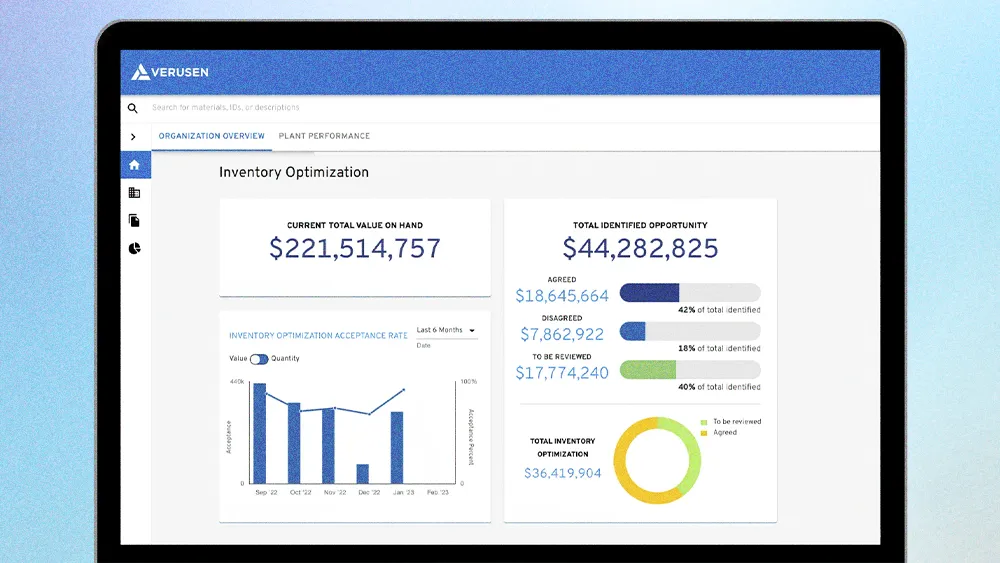Manufacturing and Logistics
Trust over algorithms is an MRO strategy for success
Monday May 19, 2025

Paul Noble of Verusen discusses the re-imagined concept of "breakthroughs" in MRO supply chains in a post-AI world.
Data inconsistencies in MRO are a major challenge, but Verusen's solutions work with existing data without extensive scrubbing.
Advancements come from purpose-built tools, not flashy AI without substance.
Now that the AI hype cycle is at an all-time high, everyone's looking for ways to adopt it. But they're overwhelmed—where to start, how to start—because there are so many different approaches.

Paul Noble
Founder & Chief Strategy Officer, Verusen
Between inflated promises and AI buzzword fatigue, it's hard for businesses to know what's actually worth their time—especially in sectors like Maintenance, Repair, and Operations where complexity is the norm and trust is hard-won.
We spoke with Paul Noble, Founder & Chief Strategy Officer at Verusen, an Inc. 5000 company and Top Supply Chain Industry Award Winner. Noble—a Monthly Forbes Contributor, previous Pros to Know Winner, and EY Entrepreneur of the Year Finalist—argues that the real breakthroughs in MRO supply chains aren't coming from flashy algorithms; they're coming from grounded, purpose-built tools that prioritize usability and trust.
AI overload: "Now that the AI hype cycle is at an all-time high, everyone's looking for ways to adopt it," Noble says. "But they're overwhelmed—where to start, how to start—because there are so many different approaches." That's why Verusen leans into purpose-built solutions: to cut through the noise and offer a clear, grounded path forward.
Lost in translation: The MRO world is riddled with data inconsistencies. "A physical good that gets passed through the supply chain becomes something different," Noble says. "Every system along the way changes it digitally." The result? "The data is too disparate. It's dirty, it's incomplete," he explains.
Skip the scrub: Traditional MRO systems demand endless data scrubbing before they're usable. Verusen takes a different route. "Most traditional software is always data dependent," Noble says. "So we've removed those data prerequisites." In his view, the old adage of "garbage in, garbage out" doesn't hold when AI is purpose-built and trained to work with what's already there.
No trust, no traction: For Noble, the barrier isn't bad data. It's a lack of confidence. "A lot of people know the outcomes they want, but are just really, really blocked by data," he says. "But most of the data is good enough." What's missing, he argues, is trust—both in the systems and in the people using them. "That trust, in humans and in data, is what we're all about."
Hybrid minds, meet hybrid agents: Trust is built when humans stay in the loop. "If they can trust that they have a voice in it—which is why we've built in deep learning feedback loops—they'll tell us things they'd never put in an ERP system," Noble says. These real-world inputs shape what he calls "hybrid agents": adaptive systems that evolve with human insight.
Looking ahead, Noble sees this blend of human and machine intelligence as the foundation for resilient, scalable operations. "The more you're utilizing, the more we're learning," he says. "We're building a sustainable, scalable approach to your global MRO supply chain." In other words, this isn't AI for AI's sake—it's AI that earns its keep.